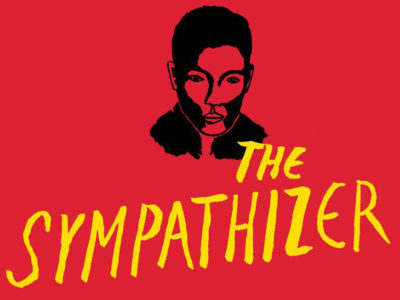Author Viet Thanh Nguyen is interviewed by David A. Maurer of The Daily Progress.

Viet Thanh Nguyen was too young to retain reliable memories of the chaos and fear that compelled his parents to flee South Vietnam in 1975 with him and other family members.
But the Vietnam War was a near-constant shadow that loomed on the periphery of his life as he grew up in the United States. He saw interpretations of the war in Hollywood movies and read about it in books, and as his knowledge grew, so did the war’s complexities.
Last year, Nguyen contributed to the canon of Vietnam War-related literature with his award-winning novel, “The Sympathizer.” And, in April, his nonfiction book, “Nothing Ever Dies: Vietnam and the Memory of War,” will be released.
Nguyen, an associate professor of English and American Studies and Ethnicity at the University of Southern California, will talk about his books from 1 to 2:30 p.m. Sunday at the University of Virginia Bookstore as part of the 22nd annual Virginia Festival of the Book, which will run through Sunday.
“The Sympathizer” is about a communist double agent who, at the end of the war, leaves Vietnam with refugees in order to report their activities back to his leaders after they resettle in America. “Nothing Ever Dies” is a work of nonfiction that attempts to get at the essence of the war and its aftermath.
“Looking at the war from historical hindsight, it was a mistake,” Nguyen said during a recent telephone interview. “It seems like an unnecessary intervention in terms of the way that the United States did things.
“In the long run, all the aims of American foreign policy in Southeast Asia, at least in regard to Vietnam, were eventually realized, with the exception that Vietnam is a communist country. But otherwise, Vietnam as a communist country is a country that supports capitalism, is a partner increasingly with the United States, and is active in collaborating with the U.S. to advance American interests in Southeast Asia and the South China Sea.
“From that perspective, I just wish that Americans had realized that diplomacy could have worked. And that a communist country would not have been as politically threatening as Americans had thought at the time.”
That the Vietnam War, for the victors, is known as the American War shows how perspectives of the conflict differ. Even the nature of the war and how it was experienced was ever-changing and individualistic.
Depending on one’s role in the conflict, a tour of duty could be a vacation in paradise, or a hellish nightmare that would leave open wounds for a lifetime. Nguyen believes that making sense of such a shape-changing war often has led to simplification.
“The American point of view has tended to present a very narrow version of the Vietnam War for Americans,” Nguyen said. “Most Americans were there for a year.
“The more an American was involved in that war, the more difficult it was to reconcile the end of the war with the friendships and relationships made there. For people like that, the war is never finished.
“I think of my two books as part of the same project. Although ‘The Sympathizer’ deals with serious subjects, it was meant to be entertaining. With ‘Nothing Ever Dies,’ I try to address how the war has been remembered.”
As complicated as the war can be for Americans, Nguyen said it’s even more so for Vietnamese. He has been back to Vietnam several times and hasn’t always been welcomed with open arms, as most Americans are.
“The Vietnamese people are actually much more bitter toward each other than they are toward Americans in general,” Nguyen said. “They fought a civil war, basically.
“We’re talking about people who have fought against each other, took different sides. Sometimes, members of the same family had divergent fates afterward, because some stayed in Vietnam and some left. So it’s much more complicated emotional and political terrain for the Vietnamese people with each other.
“When I go back, there’s some tension, because I’m seen as a child of refugees and as a big, fat, wealthy American. I’ve lived a different history than they have lived.”
Nguyen was 4 years old when he and his family fled Vietnam. As he matured and began seriously studying the war that had ended and changed so many lives, one thing became obvious to him.
“Americans remembered the war as their war, and through their own experiences,” Nguyen said. “The Vietnamese were mostly marginal players in an American drama.
“Americans have a hard time understanding Vietnamese points of view, and when they did try to understand, they often gravitated toward the North Vietnamese point of view. After the war, Americans were often more interested in understanding their former enemies than they were their former allies.
“Of course, my family and the overwhelming majority of the Vietnamese people in the U.S. came from the side of the allies. So many of us felt we had not just lost a country, and lost a war, but that we were being completely ignored and marginalized in the country that we had settled in.
“Although ‘Nothing Ever Dies’ is a scholarly book, it was written for people who are not academics. And one thing that ‘The Sympathizer’ is doing is inserting a Vietnamese perspective on the war into the American imagination.”


